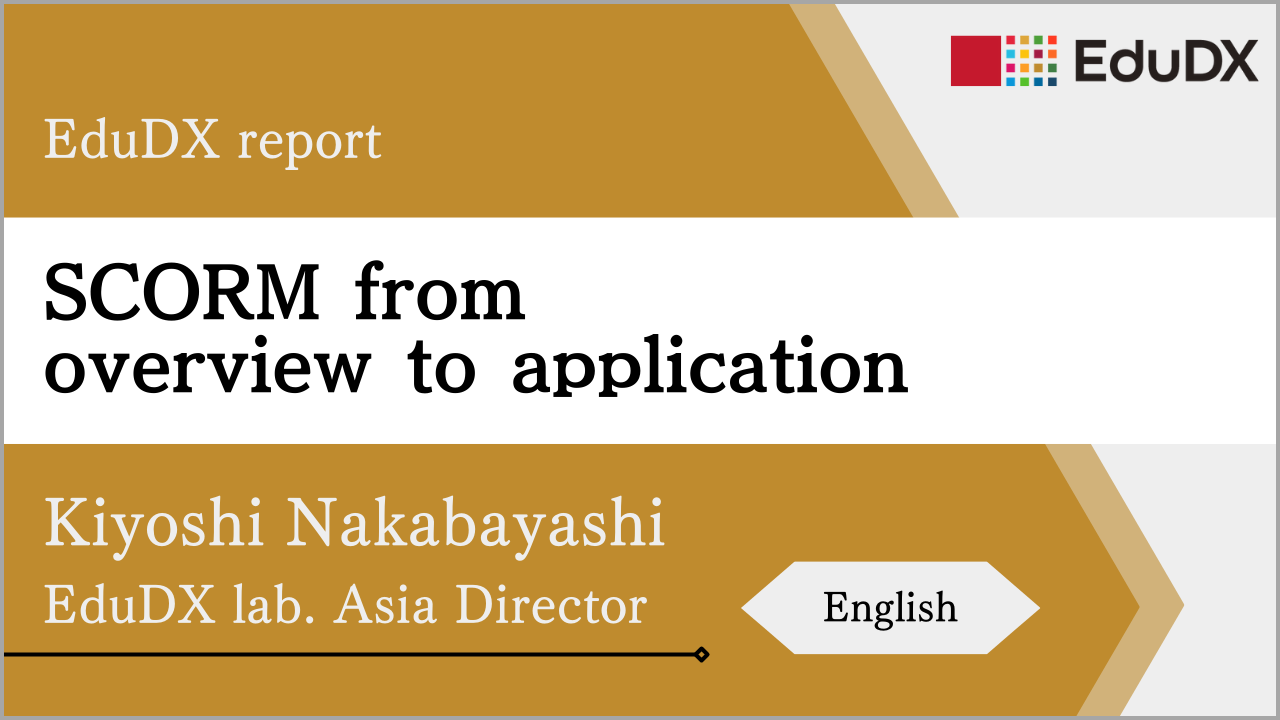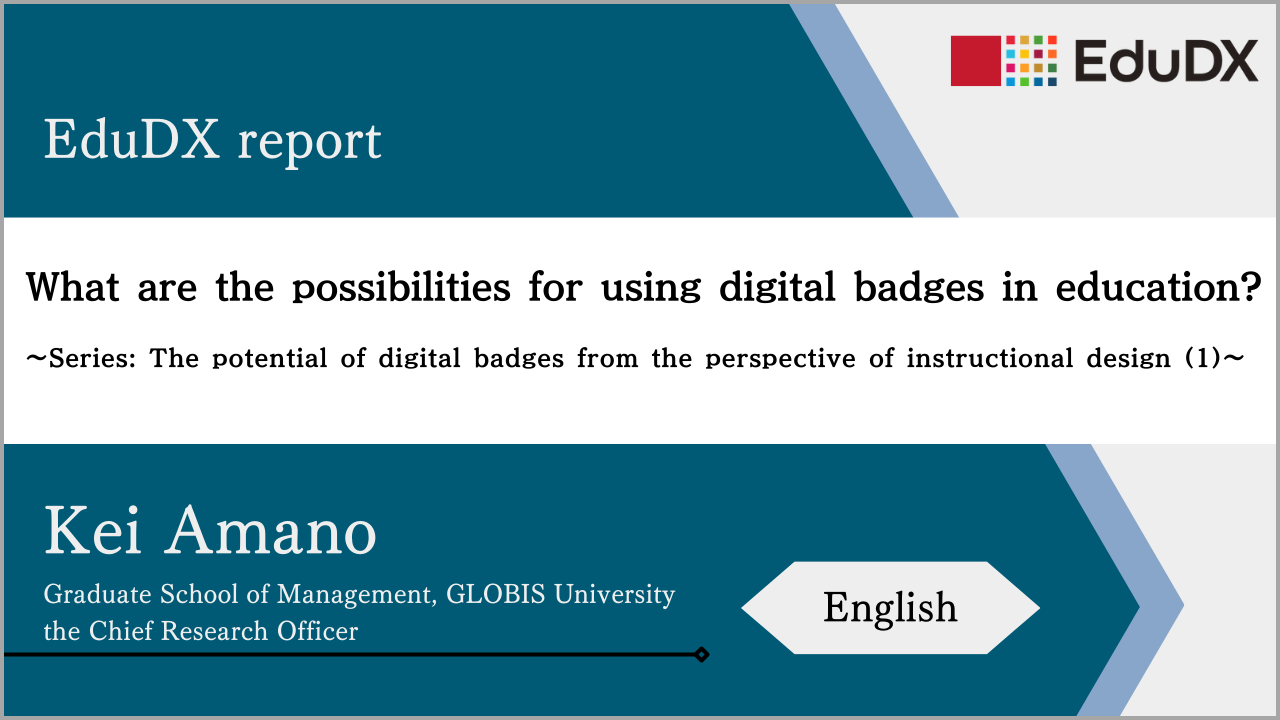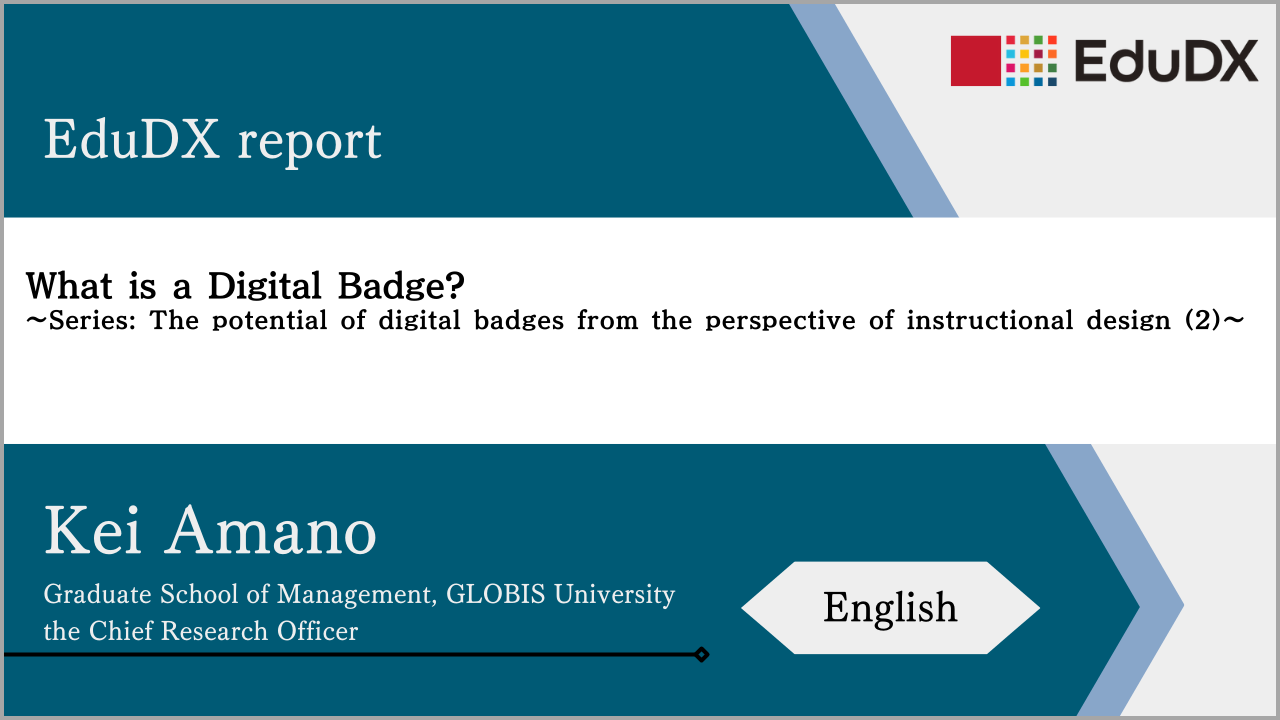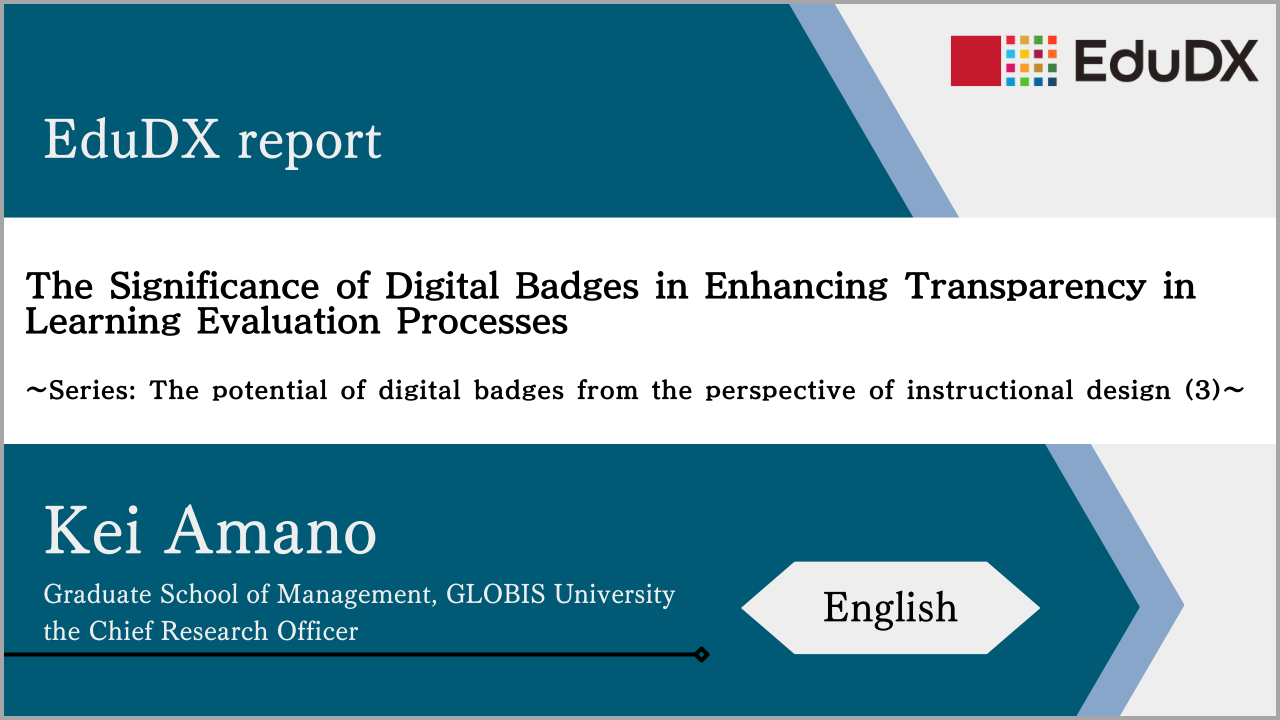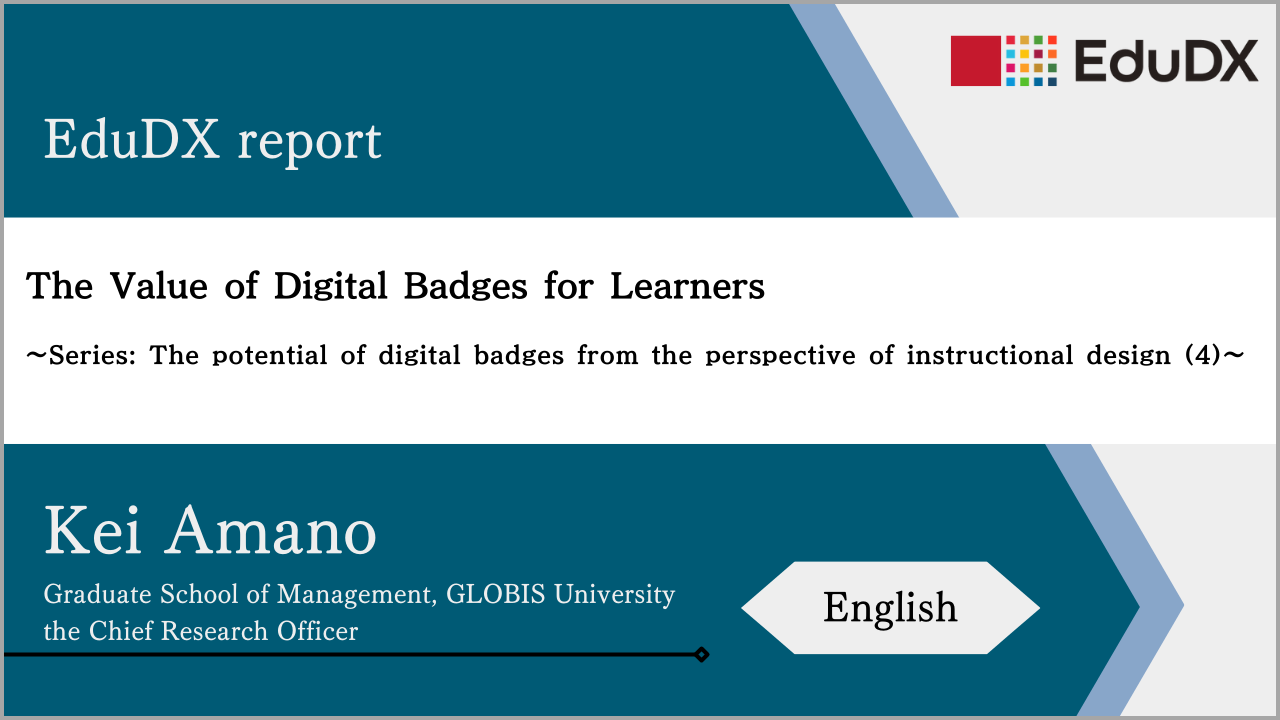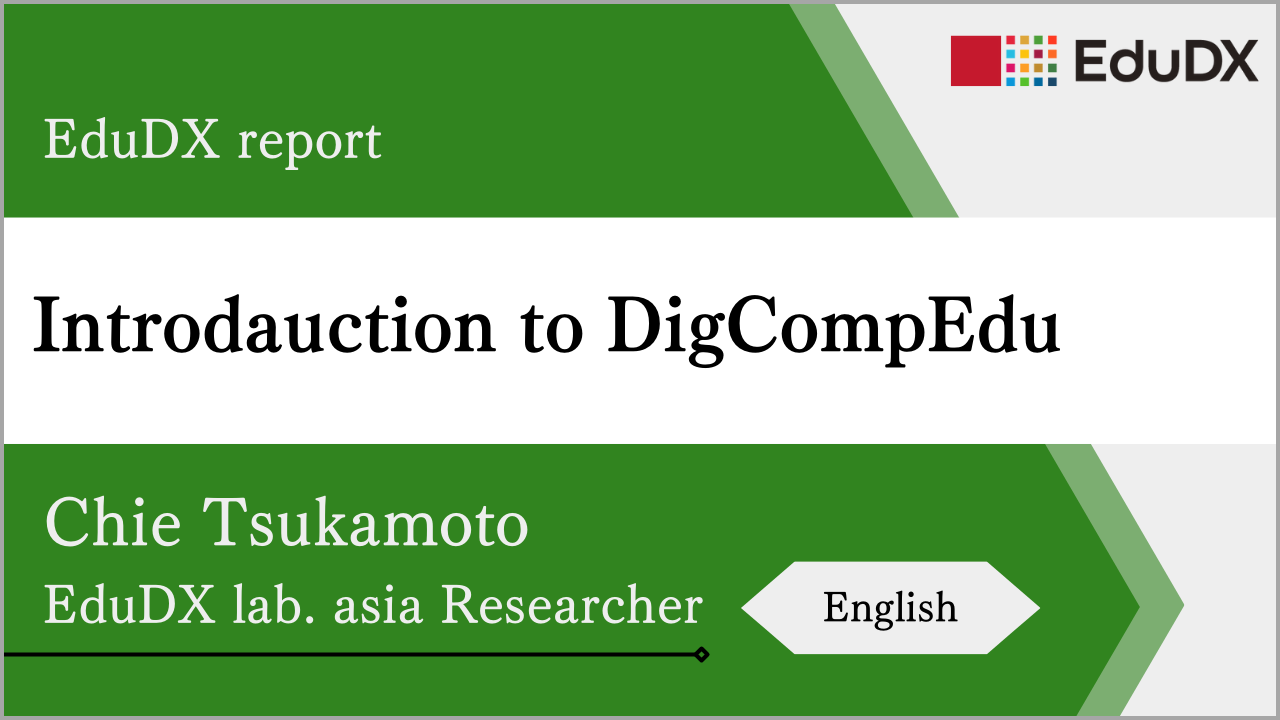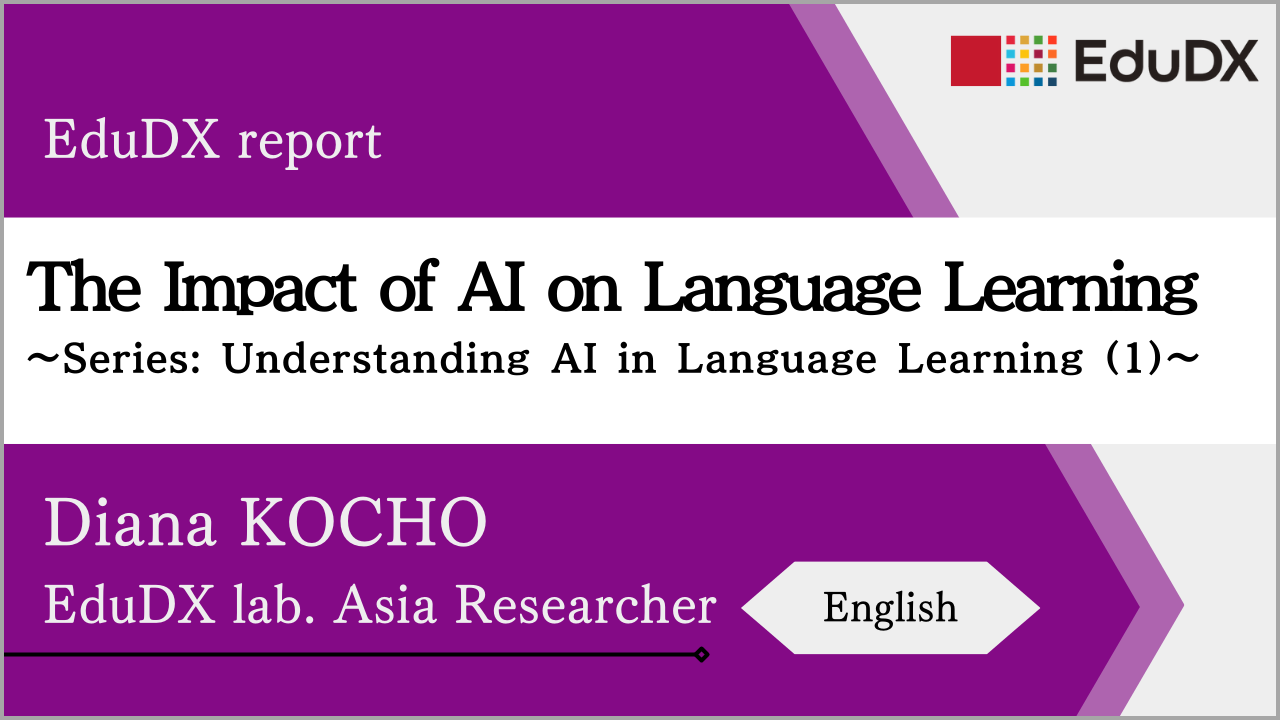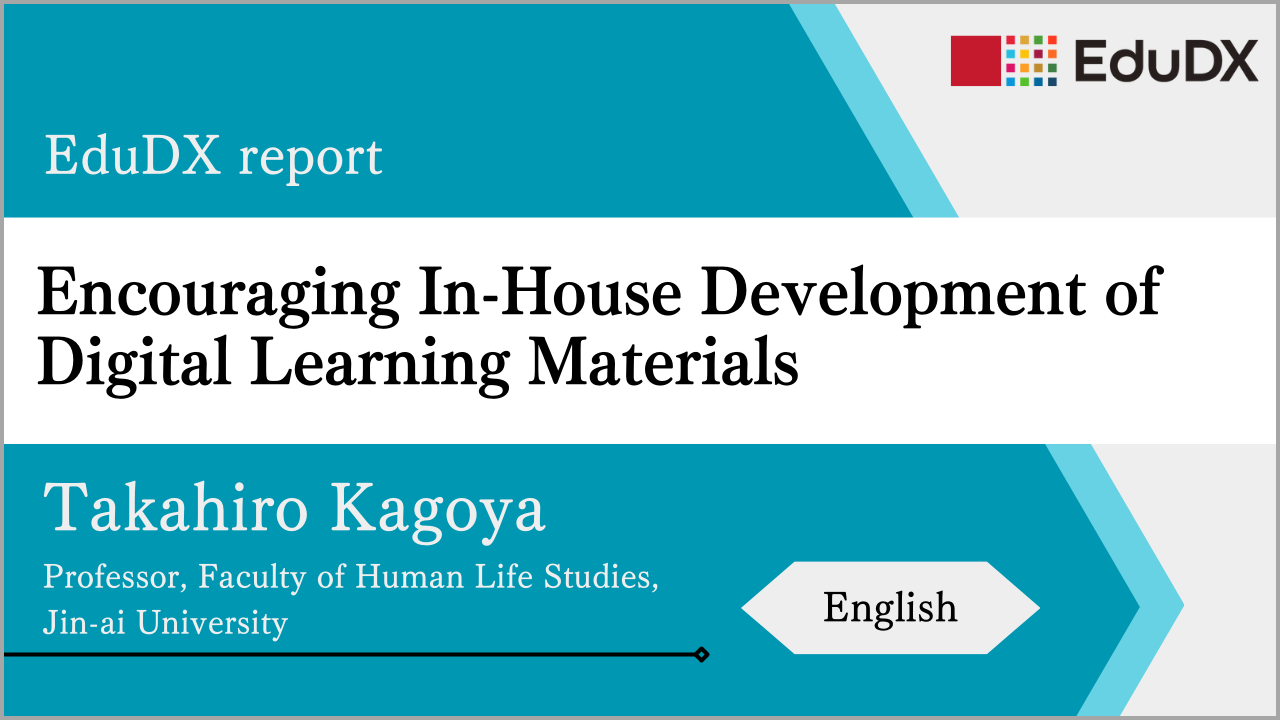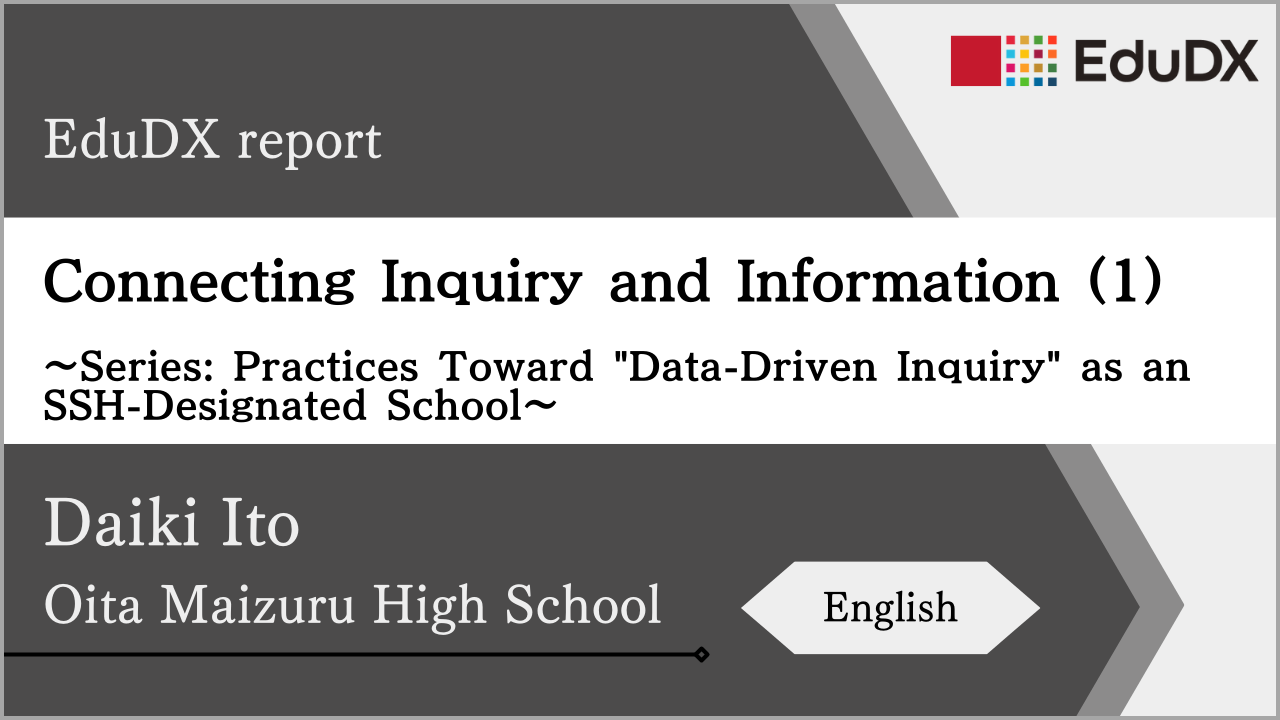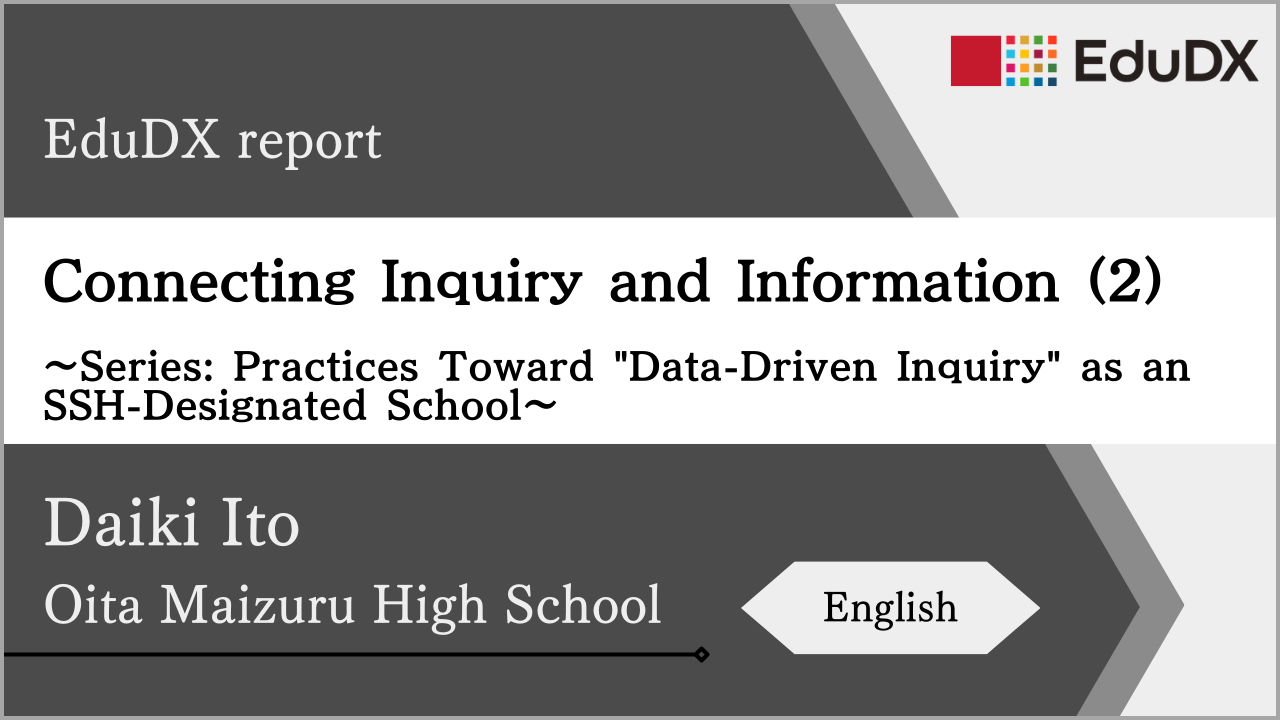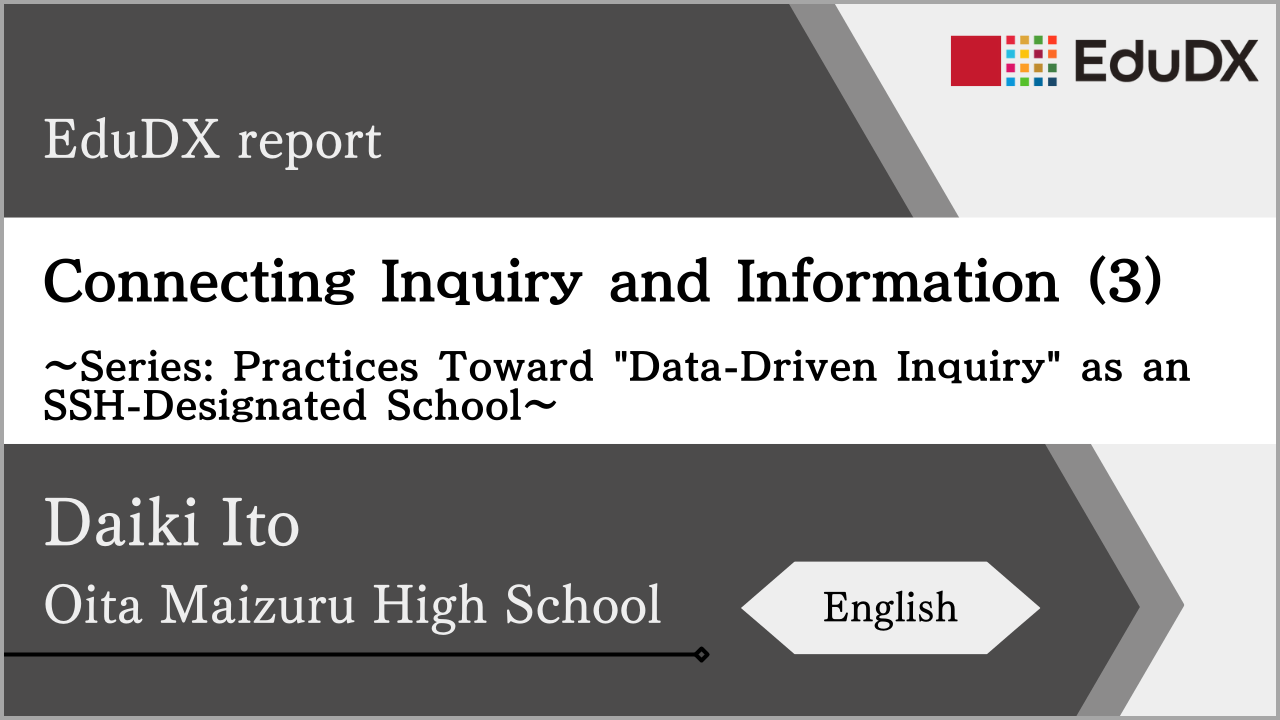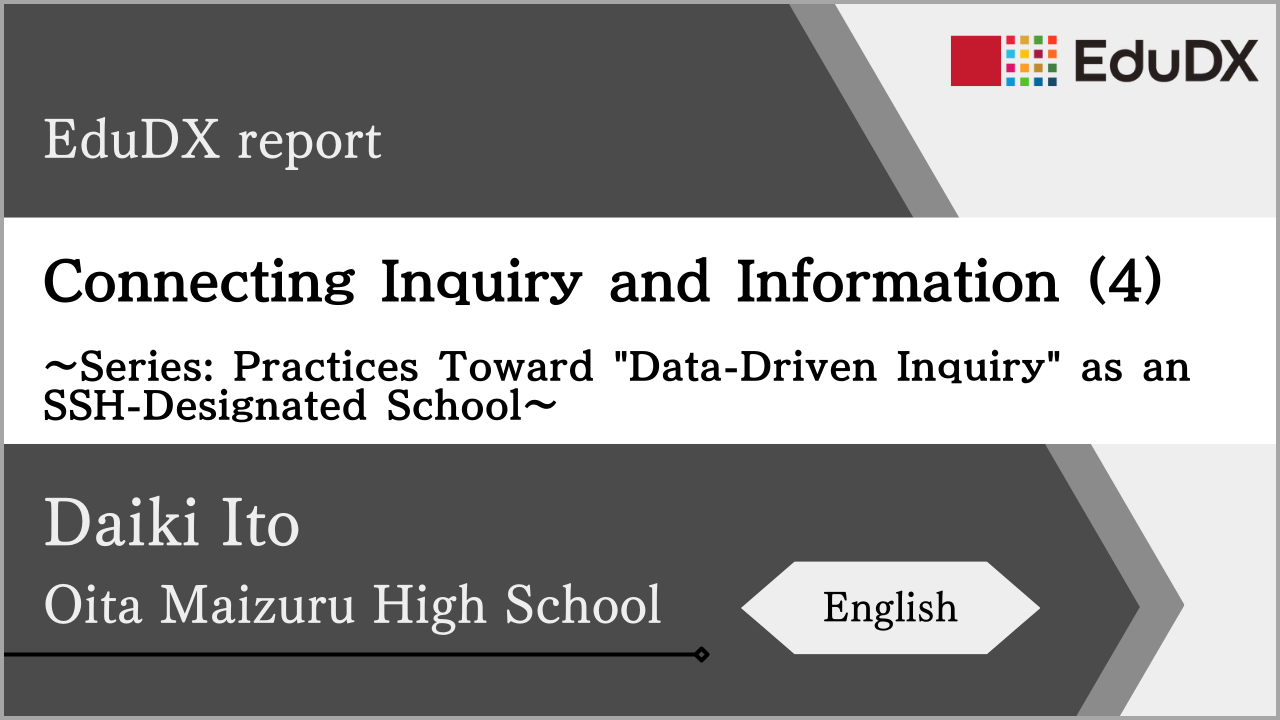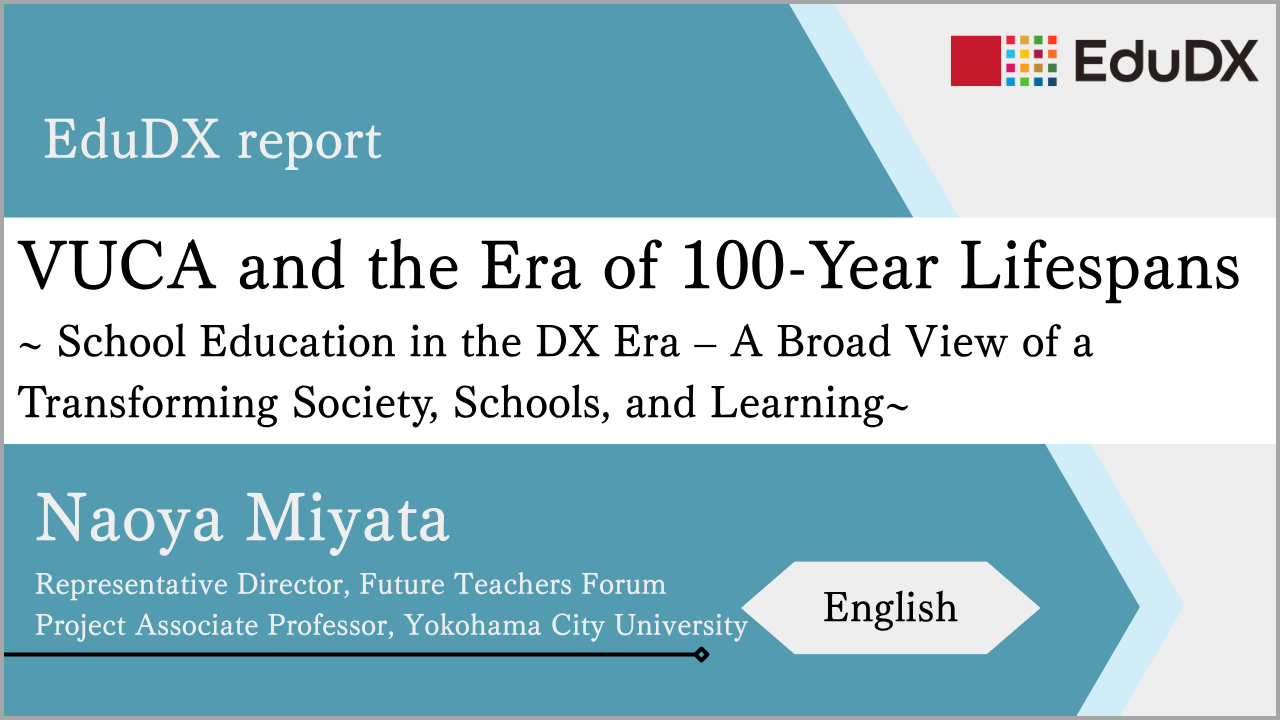About EduDX lab.Asia

About EduDX lab. Asia
”EduDX” is a term we coined by combining the words “Education” and “Digital Transformation.
We define “EduDX” as “activities, processes, concepts, and frameworks that aim to improve the quality of education and realize equal educational opportunities by innovating educational processes, environments, and experiences through the digitalization of education.
What exactly is good education? How can we approach the SDG goal of “quality education for all”? And what effects does the “digitalization of education” bring to contemporary society, and what is expected of us?
These are all very difficult questions. ”EduDX lab.Asia” was established for the purpose of conducting surveys and research on the “digitalization of education” and returning the results to society, utilizing the experience and know-how we have accumulated through our e-learning business over the past 20 years. We hope that by disseminating domestic and international information from various angles, we can provide many of you with opportunities and hints to think about these “questions”.
Message from the EduDX lab.Asia Director

EduDX lab.Asia Director
【Brief Personal History】
M.S. from the School of Computing of Tokyo Institute of Technology in 1982. Joined Nippon Telegraph and Telephone Public Corporation in the same year. After working as a senior researcher at the Information and Communication Processing Laboratories of Nippon Telegraph and Telephone Public Corporation, and as a director of the Learning Portal Division of NTT Resonant Corporation, a professor at The Open University of Japan, and a professor at the Faculty of Information Science and Technology, Chiba Institute of Technology, he is currently a visiting professor at Kumamoto University, Department of Teaching Systems, and vice president of the Digital Learning Consortium. D. in 2006 from the Graduate School of Human Sciences at Waseda University. D. in Human Sciences.
My name is Nakabayashi, and I have recently assumed the position of Director at EduDX lab.Asia.
More than 20 years have passed since the spread of the Internet and the WWW( World Wide Web) brought attention to the use of IT in education, and the term “e-learning” became widespread. Although there have been changes in interest after the initial boom, the use of IT in education has steadily expanded, and the digitalization of education is once again attracting attention in the context of the generalization of remote work due to the COVID-19 pandemic, and the recent DX, reskilling, information education in compulsory school, and GIGA school concepts.
The idea of using computers for learning and education has a history as old as artificial intelligence, and in the 1950s, the idea of “teaching machines” was born based on behaviorism in psychology. The idea of a computer providing personalized instruction based on the learner’s level of understanding was inherited to the 1980s through the research for educational applications of expert systems, and is now being used in e-learning. The spread of the Internet and WWW in the 1990s led to user-participatory media such as social networking services (SNS), creating a learning environment that encourages active interaction among learners, rather than one-way teaching.
The evolution of IT has also had a significant impact on the structure of society and organizations. In contrast to mass production and mass consumption in the industrial society, the value of the information society has shifted to diversification and individualization. This trend has been accelerating in recent years. We would like to continue to ask what role education and learning should play in such a transforming society, and how digitalization can contribute to building a common foundation for learning while meeting the diverse needs of society.
Message on the EduDX lab.Asia Establishment

CEO, e-learning Co., Ltd. (Japan)
CEO, E-LEARNING LMS PTE. LTD.(Singapore)
Moodle Evangelist
I do not believe that the “digitalization of education” is simply about moving real classes online and providing affordable education that can be described as “anytime, anywhere. Face-to-face teaching by people to people will remain the most valuable value no matter how much AI evolves in the future. However, it is great to have the option of online as an alternative to real life in any field. The same is true in the field of education, where digital technology is making possible things that were previously difficult to achieve, such as challenging simulations and direct instruction from authorities in specialized fields that are restricted in the real world. I believe that the goal of “digitalization of education” should be to realize education that surpasses the real clasroom.
I myself saw great potential in the “digitalization of education,” and 23 years ago I established e-learning Co., Ltd. We chose to provide “Moodle” as an educational platform, an OSS( Open Source Software) that was not designed and developed for profit only, but was designed based on the idea of social constructivism, with the mission of “improving educators’ abilities for a better world,” and in which users who practice education participate in its development. Moodle” is an OSS that is developed by users who practice education. Moodle” is not just an “anytime, anywhere” learning environment, but a powerful tool for interactive communication and collaboration online. It is an LMS with a large global market share, and we believe that educational needs will further increase in Southeast Asia, where future growth is expected, so we have established a subsidiary, E-LEARNING LMS PTE. LTD. in Singapore with the aim of promoting “Moodle” in 2022.
EduDX lab. Asia was established to separate itself from our business, and to provide a place where a wide range of global information on the “digitalization of education” can be covered and disseminated to the general public in an easy-to-understand manner. By introducing the latest knowledge and technology in this age of information chaos, we hope to demonstrate the potential value and possibilities of “digitalization of education” and promote true “digitalization of education”.
Organization
EduDX Report
Click on image to view report.
Title: From Overview to Application of SCORM
Author: Kiyoshi Nakabayashi (EduDX lab.Asia Director)
Publication Date: 15 December, 2023
Overview: Overview: The standard specification for e-learning content, SCORM. SCORM has two versions: SCORM 1.2, released in 2001, and SCORM 2004, released in 2004. This report first describes Significance of Technical Standardization, and then introduces the structure and standardization of SCORM.
Title: Digital Transformation and Education DX ~Series: Theories and Practices of Learning to Support Education and Training DX (1) ~
Author: Kiyoshi Nakabayashi (EduDX lab.Asia Director)
Publication Date: 22 December, 2024
Overview: Overview: The fundamentals of Digital Transformation (DX) are outlined, along with theories and practices for achieving Education DX. It focuses on the potential of digital technologies in education, highlighting the three stages: efficiency improvement, new value creation, and continuous transformation.
Title: Three Major Streams of Psychology Related to Learning ~Series: Theories and Practices of Learning to Support Education and Training DX (2) ~
Author: Kiyoshi Nakabayashi (EduDX lab.Asia Director)
Publication Date: 06 April, 2025
Overview: Overview: This article introduces three major psychological perspectives on learning—Behaviorism, Cognitivism, and Constructivism—as a foundation for effective use of digital technology in education and training.
Title: What are the possibilities for using digital badges in education?
Author: Kei Amano (Graduate School of Management, GLOBIS University the Chief Research Officer)
Publication Date: 31 January 2024
Overview: The possibilities of using digital badges, which differ from the efficiency and enhancement of traditional education, will be explored from a variety of perspectives based on instructional design.
Title: What is a Digital Badge?~Series: The potential of digital badges from the perspective of instructional design (2)
Author: Kei Amano (Graduate School of Management, GLOBIS University the Chief Research Officer)
Publication Date: 22 September 2024
Overview: What is a Digital Badge?~Series: The potential of digital badges from the perspective of instructional design (2) ~
Title: The Significance of Digital Badges in Enhancing Transparency in Learning Evaluation Processes~Series: The potential of digital badges from the perspective of instructional design (3) ~
Author: Kei Amano (Graduate School of Management, GLOBIS University the Chief Research Officer)
Publication Date: 20 October 2024
Overview: Introducing the outline of Dyson’s (2018) keynote at the Chicago Learning Exchange and discuss the potential use of digital badges.
Title: The Value of Digital Badges for Learners
~Series: The potential of digital badges from the perspective of instructional design (4)~
Author: Kei Amano (Graduate School of Management, GLOBIS University the Chief Research Officer)
Publication Date: 19 December, 2024
Overview: This article examines the value of digital badges as learning support tools beyond extrinsic motivation. Based on previous studies, it discusses three key aspects: (1) their role as a “currency” for skills, (2) their effectiveness in supporting the learning process, and (3) the appeal of the earning process.
Title: Introduction to DigCompEdu
Author: Chie Tsukamoto (Resercher of EduDX lab.Asia)
Publication Date: 17 July 2024
Overview: Introducing DigCompEdu, a digital competence framework for educators.
Title: The Impact of AI on Language Learning ~Series: Understanding AI in Language Learning (1)~
Author: Diana KOCHO (Resercher of EduDX lab.Asia)
Publication Date: 24 October 2024
Overview: This report discusses AI’s transformative role in language learning, driven by technologies like Natural Language Processing (NLP), Speech Recognition, and Machine Learning. It highlights AI’s impact on personalisation and accessibility in education, with examples from The Open University and Google. Challenges such as context comprehension and accent recognition are noted, setting the stage for further exploration in future reports.
Title: Encouraging In-House Development of Digital Learning Materials
Author: Takahiro Kagoya (Professor, Faculty of Human Life Studies, Jin-ai University)
Publication Date: 9 December, 2024
Overview: The advancement of ICT has significantly transformed educational and learning methods. This report focuses on the use of H5P to support the in-house development of digital learning materials, introducing methods for creating interactive learning content and highlighting its advantages. Additionally, it examines case studies of elementary school materials and explores the potential of regional learning using Virtual Tour (360). The report also considers future directions for learning materials.
Title: Connecting Inquiry and Information (1) ~Series: Practices Toward “Data-Driven Inquiry” as an SSH-Designated School~
Author: Daiki Ito (Oita Maizuru High School)
Publication Date: 29 August, 2024
Overview: This report examines the role of ICT and information science in inquiry-based learning, following the transition from the “Period for Integrated Study” to the “Period for Inquiry-Based Cross-Disciplinary Study”. It highlights student autonomy, ICT utilization, and the contribution of statistical and problem-solving techniques from “Information I” and “Information II”. Future discussions will focus on practical applications of data analysis methods.
Title: Connecting Inquiry and Information (2) ~Series: Practices Toward “Data-Driven Inquiry” as an SSH-Designated School~
Author: Daiki Ito (Oita Maizuru High School)
Publication Date: 29 August, 2024
Overview: This report examines the growing importance of statistics and data science in high school subjects “Information I” and “Information II”, in the context of advancing education toward Society 5.0. It highlights challenges in implementing data-driven learning, such as environmental constraints and difficulties in teaching statistics. To address these issues, the report introduces the development of a web application and trial lessons designed to enhance statistical learning and promote data-driven inquiry.
Title: Connecting Inquiry and Information (3) ~Series: Practices Toward “Data-Driven Inquiry” as an SSH-Designated School~
Author: Daiki Ito (Oita Maizuru High School)
Publication Date: 29 August, 2024
Overview: This report discusses the development of a curriculum to promote data-driven inquiry-based learning and the creation of the statistical analysis web application, easyStat. Based on the content of Information I and Information II, educational materials were designed to facilitate inquiry activities utilizing statistics and machine learning. A web application was developed to enable learning without environmental constraints. This study aims to support the implementation of data-driven inquiry activities and enhance information literacy.
Title: Connecting Inquiry and Information (4) ~Series: Practices Toward “Data-Driven Inquiry” as an SSH-Designated School~
Author: Daiki Ito (Oita Maizuru High School)
Publication Date: 29 August, 2024
Overview: This report explores the importance of learning statistics and data science as fundamental elements of AI and introduces the application of machine learning in high school inquiry-based learning. A web application, easyAutoML, was developed to support data-driven inquiry activities by utilizing statistical techniques and providing a hands-on learning environment. Additionally, the report highlights initiatives where students present their research findings at academic conferences and events, fostering independent learning and engagement in real-world problem-solving.
Title: VUCA and the Era of 100-Year Lifespans ~School Education in the DX Era – A Broad View of a Transforming Society, Schools, and Learning~
Author: Naoya Miyata (Representative Director, Future Teachers Forum / Project Associate Professor, Yokohama City University)
Publication Date: 31 January, 2025
Overview: This article introduces the first part of a series on school education in the digital transformation (DX) era. It explores how the VUCA era and the 100-year life society are reshaping society and education, emphasizing the need for individuals to turn knowledge into wisdom and lead more autonomous lives in an increasingly complex and globalized world.

